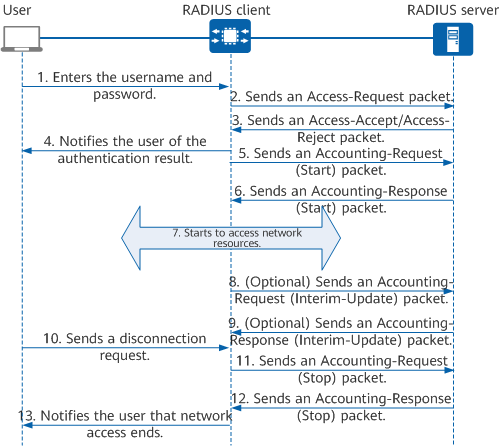
RADIUS (Remote Authentication Dial-In User Service) in 802.1x is a networking protocol that provides centralized Authentication, Authorization, and Accounting (AAA) management for users who connect and use a network service. It's used to manage and maintain user profiles in a central database and supports various authentication methods to validate user credentials. This service is essential for businesses that have a large number of users connecting to their network to ensure security and control.

1. Centralized Management: RADIUS allows for centralized management of a large network. It provides a single place to manage all network access, which simplifies administration and increases security.
2. Security: RADIUS provides robust security features. It supports a variety of methods for authenticating users, and it encrypts passwords to protect them during transmission over the network.
3. Accountability: RADIUS provides detailed accounting information, which can be used for billing, auditing, and reporting purposes. It can track data such as the duration of a user's connection, the data they transferred, and the services they accessed.
4. Compatibility: RADIUS is compatible with a wide range of network devices and systems. This includes routers, switches, VPNs, and wireless access points.
5. Flexibility: RADIUS is highly configurable and can be customized to meet specific business needs. For example, it can be used to enforce network access policies, restrict access to certain services, or provide different levels of access to different users.
6. Cost-Efficiency: By centralizing network management, RADIUS can reduce the amount of time and resources spent on network administration. This can result in significant cost savings for businesses and service providers.
